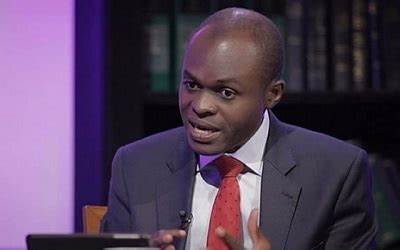The Operation Recover All Loot (ORAL) team has vehemently denied allegations leveled against them by Minority Leader Alexander Afenyo-Markin, who accused the committee of deploying drones to surveil his private properties. Afenyo-Markin, in a media interview, admitted to being aware of ORAL’s activities but stated he was choosing to ignore them. The committee, through legal practitioner Martin Kpebu, dismissed the accusation as “ridiculous” and urged the public to disregard it as completely unfounded. Kpebu categorically stated that the ORAL committee does not possess any drones and emphasized the absurdity of the claim, given the composition and integrity of its members. He further rejected claims of secretly deployed additional operatives, attributing such allegations to political maneuvering within a democratic context.
The denial by the ORAL committee underscores the contentious nature of their work, which presumably involves investigating and recovering misappropriated public funds. Afenyo-Markin’s accusation, whether strategically motivated or based on misinformation, highlights the potential for political friction and suspicion that can arise during such investigations. The committee’s strong rebuttal aims to protect its credibility and maintain public trust in its operations. By emphasizing the implausibility of the drone surveillance claim, Kpebu seeks to portray the allegation as a deliberate attempt to undermine the committee’s work. The reference to “strategic reasons” behind such claims suggests a perception of politically motivated attacks designed to discredit the ORAL team.
The situation also illustrates the challenges faced by committees tasked with investigating sensitive matters, particularly those involving high-profile individuals. Such investigations can become highly politicized, with accusations and counter-accusations flying between opposing factions. The ORAL committee’s experience demonstrates the importance of maintaining transparency and accountability in its operations to counter such allegations effectively. Their prompt and forceful denial serves as an attempt to control the narrative and prevent the spread of misinformation that could damage their reputation and hinder their work.
Kpebu’s assertion that the committee’s members are above such “ridiculous” actions speaks to the importance of maintaining public trust in the integrity of investigative bodies. He implicitly argues that the very nature of the committee’s composition precludes such underhanded tactics. However, in a politically charged environment, mere assertions of integrity may not be sufficient to quell suspicions. The committee may need to demonstrate its commitment to transparency through open communication and clear documentation of its procedures. This would not only help dispel unfounded allegations but also enhance public confidence in the overall process.
The broader context of this incident highlights the delicate balance between conducting thorough investigations and respecting individual rights. While the ORAL committee has a mandate to recover misappropriated funds, it must operate within the bounds of the law and avoid any actions that could be perceived as overreach or harassment. The allegation of drone surveillance, even if false, raises concerns about potential privacy violations and the need for strict adherence to legal protocols. The committee’s response should not only address the specific allegation but also reaffirm its commitment to respecting individual rights and operating within the confines of the law.
Ultimately, this incident underscores the challenges of conducting sensitive investigations in a politically charged environment. The ORAL committee’s experience serves as a reminder of the importance of maintaining transparency, accountability, and respect for individual rights throughout the investigative process. By adhering to these principles, the committee can build public trust, counter misinformation, and effectively carry out its mandate to recover misappropriated public funds. This incident also highlights the need for clear communication strategies to address allegations and maintain public confidence in the integrity of the investigation.














